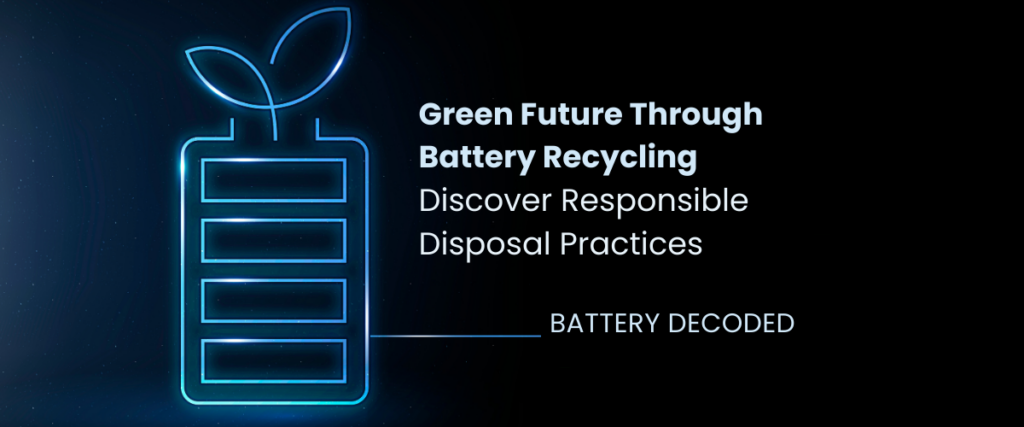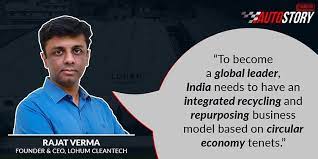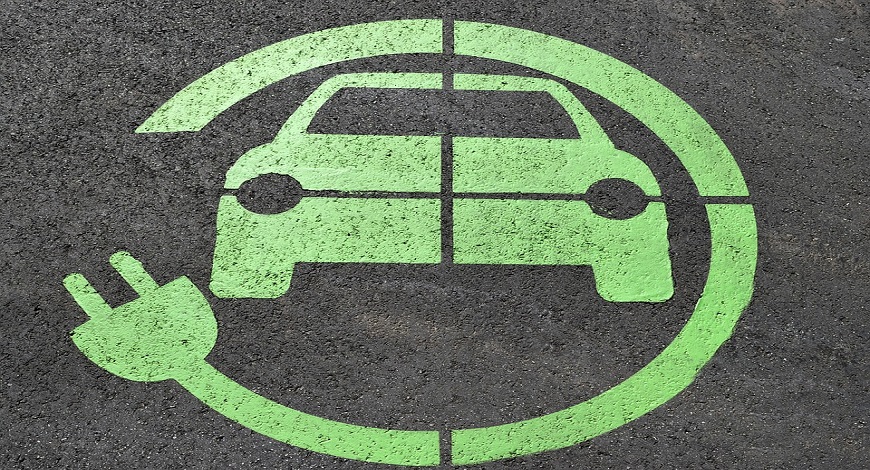
This edition of LOHUM's #GreenGazette aims to describe the scale of the issue and break down the ways through which most of us in an individual capacity are empowered to directly contribute to the environment via battery recycling.
The Lithium-ion battery is the technology powering our current digital age and has become indispensable in our daily lives. However, as these batteries reach the end of their life, they can transform from useful energy sources to potential environmental and safety hazards, but only if they enter the waste stream.
In the journey towards a greener world, battery recycling is not the end of the line. Reuse, the possibility of giving batteries a second life, holds great promise. Some nations like New Zealand are proactively storing batteries that aren’t yet financially viable to recycle, keeping them in secure storage for future recycling when technology evolves. Proper battery recycling and reuse efforts ensure stay out of the waste stream entirely, and make the most of their considerable value and reusability.
Related: Second-Life of Used EV Batteries: 5 Bottlenecks
Our generation grew up with the philosophy of Reduce, Reuse, and recycling, and many of us have indeed diligently followed these tenets by contributing in various ways from composting to separately packing our garbage, giving away old clothes, donating toys, and more. But today the largest frontier in our battle against waste is e-waste, of which battery recycling, particularly Lithium ion batteries, makes up a substantial portion.
In this piece, we emphasize the importance of educating consumers about battery recycling. However, it’s equally important to understand the economic advantages. Dive into the details in [Economic Benefits of Battery Recycling].
Beyond mitigating environmental concerns, battery recycling plays a pivotal role in building a sustainable green energy economy. Recovering valuable materials like nickel, lithium, and cobalt from used batteries substantially reduces the need for resource, pollution, and carbon-intensive mining operations. For instance, at LOHUM, we recover 95% of all battery raw materials present in every lithium ion battery via battery recycling, also referred to as ‘urban mining’.
The batteries that we pick up from our partners get to us only after you return them or drop them off at end of life. By facilitating battery recycling, you directly contribute to conserving valuable resources and minimizing the carbon footprint of the entire industry.
If you’re an EV owner, returning your EV battery when it reaches the end of its life can contribute to:
New battery applications are made from repurposed EV batteries. At LOHUM, we repurpose used EV batteries with remaining useful life to make EV Charging Stations, BESS for commercial, home, and grid applications, as well as emergency power backup systems and batteries for all kinds of renewable energy storage.
Through the process of EV Battery Recycling that begins after you dispose of the battery via the various proper channels, LOHUM saves 90% of CO2e via repurposing versus mining per ton of materials and uses 100x less water than mining for battery recycling the critical materials, and refining them with up to 99.5% purity levels.
Since these highly pure raw materials will be recirculated back into the supply chain and end up in a new battery, you will have contributed to lowering the price of lithium ion batteries and thus the EV and energy transition ecosystems overall by facilitating Lithium ion battery recycling.
Batteries, regardless of their type, often contain toxic chemicals like cadmium, lead, lithium, cobalt, and more. When disposed of improperly, these pollutants can seep into groundwater, damage delicate ecosystems, and even enter the food chain, causing far-reaching ecological and health consequences. It is high time we recognize the urgency of both consumer and EV battery recycling to safeguard our planet’s well-being.
As these pollutants accumulate in organisms higher up in the food chain, there is an increased risk of bioaccumulation and biomagnification. This means that even small amounts of toxins present in batteries can become highly concentrated in larger organisms over time.
Related:
The Infinite Recyclability of Lithium Ion Batteries
Navigating the complexities of battery types can be overwhelming, but consumers need not be experts. The key takeaway is simple—All batteries are recyclable! Whether you’re dealing with car batteries, rechargeable batteries, or primary batteries like alkaline AA batteries, battery recycling is the responsible choice. At LOHUM, we recycle and repurpose lithium-ion batteries of all form factors and chemistries with 95% efficiency.
You can make a difference. By accelerating battery recycling, you can play a vital role in protecting the environment and conserving valuable resources. This small but impactful step is instrumental in building a sustainable world for future generations. At the bare minimum, you prevent toxic compounds from entering the food and water supply, and at best, you contribute to the recirculation of those battery materials into the supply chain, slowing down the demand for unsustainable mining!
Safeguarding our environment starts with how we handle old battery recycling. Avoid haphazardly tossing them into bags or storing them in metal containers, as this may pose potential risks. Instead, employ secure containers to arrange batteries side-by-side, preventing contact with metallic or conductive objects. Many guides and manuals recommend taping the points of old batteries with insulated tape to prevent shorting and any sparks.
Battery recycling is more accessible than ever. Many municipalities, retailers, and electronics stores offer collection events or have permanent drop-off facilities for hazardous waste and electronics. The simplest way remains to return the battery to the retailer, outlet, or OEM from where the product was purchased from. Most electronics stores and service centers are usually more than happy to receive old batteries for recycling. Some third-party companies may remunerate you for your contribution, or offer exciting exchange deals.
And with the advent of the Battery Waste Management Rules of India which lay out Extended Producer Responsibility for batteries; producers, retailers, and underwriters alike are setting up frameworks to retrieve end-of-life batteries via streamlined channels to make it easier and more rewarding for you to return the batteries. The ecosystem in India is target-driven, requiring the companies to not only collect batteries and recycle them, but also utilize some recycled material in the production of new products.
Thus, dropping off batteries for recycling has become easier than ever!
At LOHUM, we are committed to responsible battery recycling and a greener future. Stay tuned for more updates, tips, and insights on recycling, sustainability, and the innovative strides we are making in the world of green technology. Make a difference today by recycling your batteries responsibly and dropping them off with your retailer, OEM, or other collection points.
Related:
Circular Economy: Realists’ Utopia
We hope that this overview showcased all you can do to help finite battery recycling energy transition resources and the compelling reasons to do so. You too can help make battery materials last forever.
Tune in to the LOHUM Green Gazette for more sustainability, battery energy, energy transition, circular economy, battery recycling, and battery repurposing content!
Together, we can create a cleaner, healthier, and more sustainable world.
#LOHUM #BatteryRecycling #Sustainability #GreenTech #RecycleRight #GreenLiving #Environment #EcoFriendly #Lithium #EnergyTransition
Related blogs
This entrepreneur wants India to make its own lithium-ion cells for electric vehicle batteries

Forbes India
Rajat Verma already recovers raw materials from used cells at his venture, LOHUM Cleantech. He wants to close the loop by making cells in India as well.
India needs integrated recycling and repurposing battery business model: Rajat Verma of LOHUM Cleantech

YOURSTORY
In an interaction with AutoStory, Rajat Verma, Founder and CEO of LOHUM Cleantech, speaks about building his company, and about battery manufacturing and repurposing as an industry.
Sourcing Raw Materials Is A Big Challenge In Li-ion Battery Space: Founder Lohum

Business World Disrupt
Recognized as ‘The Most Innovative Company of the year 2022’ by The Confederation of Indian Industry (CII), LOHUM is a producer of sustainable Li-ion battery raw materials
1800 572 8822
Email : enquiry@lohum.com
G98, Site, 5, Kasna, Block A, Surajpur Site V, Greater Noida, Uttar Pradesh 201306
LOHUM Cleantech Private Limited, Plot No. D-7 & 8, Site 5th, Kasna Industrial Area, Greater Noida, Gautam Budh Nagar, Uttar Pradesh – 201308
LOHUM Cleantech Private Limited, Plot No. O-17, Site 5th, Kasna Industrial Area, Greater Noida, Gautam Budh Nagar, Uttar Pradesh – 201308